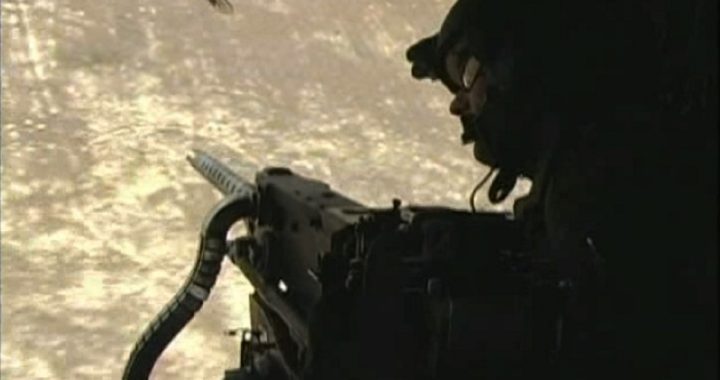
After waging more than six months of an undeclared war, with more than 2,000 air strikes against the so-called Islamic State of Iraq and the Levant, President Obama finally got around to asking Congress for a resolution authorizing the use of military force.
And in a message accompanying his draft AUMF resolution, the president said: “Although existing statutes provide me with the authority I need to take these actions, I have repeatedly expressed my commitment to working with the Congress to pass a bipartisan authorization for the use of military force (AUMF) against ISIL.”
In other words, the president doesn’t need any authorization from Congress, but it would be nice to have one just to show bipartisan support for what he is already doing and will continue to do, whether Congress approves it nor not. Yet far from being offended by this assignment of a rubber stamp function to the legislative branch, some congressional leaders are protesting that Obama’s latest claim to the prerogatives of the imperial presidency are far too modest.
“I don’t believe that what the president sent here gives him the flexibility or the authority to take on this enemy and to win,” said Speaker of the House John Boehner, responding to the three-year limit in the draft authorization and the fact that it explicitly does not authorize the use of U.S. forces in “enduring offensive ground operations.”
“To restrain him in our authorization of him taking military action, I think, frankly, is unconstitutional and eventually leads to 535 commanders in chief,” said John McCain (R-Ariz.), chairman of the Senate Armed Services Committee.
But the three-year authorization may be renewed or extended by Congress at any time. Given the political difficulty of ending a war in progress (See Vietnam, Iraq, Afghanistan, etc.), chances are slim that Congress would refuse reauthorization if the United States is still fighting ISIL in 2018. Concerning the non-authorization of “enduring offensive ground operations,” the president’s message to Congress makes clear how loose that “limitation” really is. The AUMF would, Obama said, authorize “the use of special operations forces to take military action against ISIL leadership. It would also authorize the use of U.S. forces in situations where ground combat operations are not expected or intended, such as intelligence collection and sharing, missions to enable kinetic strikes, or the provision of operational planning and other forms of advice and assistance to partner forces.”
And if all that isn’t vague enough, just how long do operations that are not “enduring” last? Six weeks? Six months? Eight to ten years? Recall the 2002 prediction of Donald Rumsfeld, then secretary of defense, as to how long the upcoming war in Iraq would last: “Five days or five weeks or five months, but it certainly isn’t going to last any longer than that.”
Obama’s claim of statutory authority to wage war against ISIL without congressional authority is intentionally nebulous. The War Powers Resolution of 1973 requires the president to seek authorization from Congress after 60 days from the beginning of hostilities, a time limit the president has already vastly exceeded. The draft resolution would repeal the 2002 AUMF for the war against Iraq, but not the 2001 authorization of force against “those nations, organizations, or persons [who]planned, authorized, committed, or aided the terrorist attacks that occurred on September 11, 2001, or harbored such organizations or persons.”
A reading of that authorization to include ISIL, an organization that did not exist on September 11, 2001, does not withstand the test of reason.
Obama’s draft resolution includes no geographical limits on the war with ISIL and with any individuals and organizations fighting on behalf of ISIL “or any closely related successor entity in hostilities against the United States and its coalition partners.” That open-ended authorization for war against ISIL or any “closely related successor” (Who determines what organization is an ISIL “successor”?) makes the three-year limit academic. The draft AUMF is a blank check for the United States’ war in the Middle East from now until the day of Armageddon.
The power of Congress to declare war was not intended to reduce Congress to the role of announcing to the world its support for whatever military actions the president chooses to undertake. James Madison, called the “Father of the Constitution” for the leading role he played at the 1787 convention, later wrote in a letter to Thomas Jefferson: “The constitution supposes, what the History of all Governments demonstrates, that the Executive is the branch of power most interested in war, and most prone to it. It has accordingly with studied care vested the question of war in the Legislature.”
The Congress in our time, far from jealously guarding the power delegated to it under the Constitution, appears incapable of even recognizing when an overreaching president is usurping its authority. By belatedly asking for a war authorization, while at the same time saying he doesn’t really need it, the president was probably not intentionally insulting the putative lawmakers. He no doubt recognizes what has been clear for a long time. The Congress of the United States is too dull and apathetic to defend its own authority under the Constitution its members have sworn to uphold.



